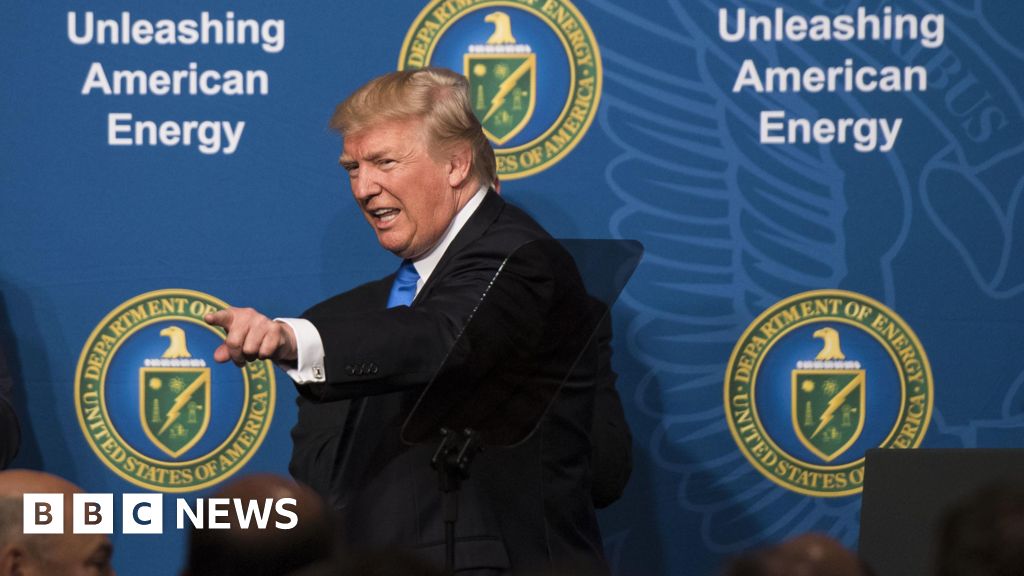Environment Correspondent, BBC World Service
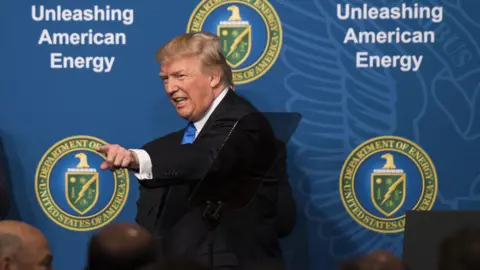 Getty Images
Getty ImagesThe UN climate summit in the United Arab Emirates in 2023 ended with a call to “transition away from fossil fuels”. It was applauded as a historic milestone in global climate action.
Barely a year later, however, there are fears that the global commitment may be losing momentum, as the growth of clean energy transition is slowing down while burning of fossil fuels continues to rise.
And now there is US President Donald Trump’s “national energy emergency”, embracing fossil fuels and ditching clean energy policies – that has also begun to influence some countries and energy companies already.
In response to Trump’s “drill, baby, drill” slogan aimed at ramping up fossil fuel extraction, and the US notifying the UN of its withdrawal from the Paris climate agreement, Indonesia, for instance, has hinted that it may follow suit.
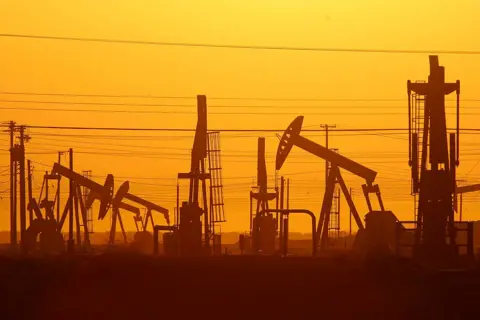 Getty Images
Getty Images‘If US is not doing it, why should we?’
“If the United States does not want to comply with the international agreement, why should a country like Indonesia comply with it?” asked Hashim Djojohadikusumo, special envoy for climate change and energy of Indonesia, as reported by the country’s government-run news agency Antara.
Indonesia has remained in the list of top 10 carbon-emitting countries for years now.
“Indonesia produces three tons of carbon [per person a year] while the US produces 13 tons,” he asked at the ESG Sustainable Forum 2025 in Jakarta on 31 January.
“Yet we are the ones being told to close our power plants… So, where is the sense of justice here?”
Nithi Nesadurai, director with Climate Action Network Southeast Asia, said the signals from her region were concerning.
She said the “richest country and the largest oil producer in the world” increasing its production gives other states “an easy excuse to increase their own – which they are already doing”.
In South Africa, Africa’s biggest economy and a major carbon emitter, a $8.5bn foreign-aided transition project from the coal sector was already moving at a snail’s pace, and now there are fears that it may get derailed further.
Wikus Kruger, director of Power Futures Lab at the University of Cape Town, said there was a “possibility” that decommissioning of old coal-fired power stations would be “further delayed”.
However he said that while there was some “walk back” from transition to renewables, there was still growth in the clean energy sector that was expected to continue.
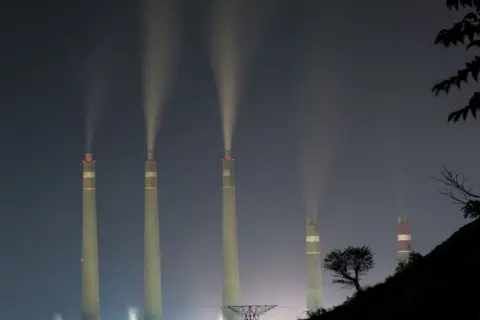 Getty Images
Getty ImagesArgentina withdrew its negotiators from the COP29 climate meeting in Baku last November, days after Trump won the US presidency. It has since followed Trump’s lead in signalling it will withdraw from the Paris Agreement of 2015 – which underpins global efforts to combat climate change.
“We now expect our oil and gas production to go up,” Enrique Viale, president of the Argentine Association of Environmental Lawyers, told the BBC.
“President Milei has hinted that he intends to withdraw from the Paris Agreement and has said environmentalism is part of the woke agenda.”
Meanwhile, energy giant Equinor has just announced it is halving investment in renewable energy over the next two years while increasing oil and gas production, and another oil major, BP, is expected to make a similar announcement soon.
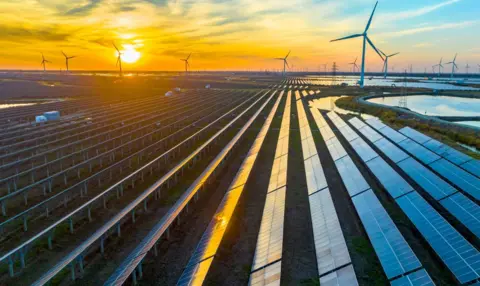 Getty Images
Getty Images‘American energy all over the world’
Trump has not just said “drill, baby, drill” but also: “We will export American energy all over the world.”
Potential foreign buyers are already lining up.
India and the US have agreed to significantly increase the supply of American oil and gas to the Indian market.
At the end of Indian Prime Minister Narendra Modi’s US visit on 14 February, the two countries issued a joint statement that “reaffirmed” the US would be “a leading supplier of crude oil and petroleum products and liquified natural gas to India”.
A few days after Trump’s inauguration, South Korea, the world’s third largest liquified natural gas importer, has hinted its intention to buy more American oil and gas aimed at reducing a trade surplus with the US and improving energy security, international media have reported from Seoul.
Officials with Japan’s largest power generator, JERA, have told Reuters they too want to increase purchases of liquified natural gas from the US to diversify supply, as it currently imports half of it from the Asia-Pacific region.
“There is certainly a threat that if the US seeks to either flood markets with cheap fossil fuels, or bully countries into buying more of its fossil fuels, or both, the global energy transition might be slowed,” said Lorne Stockman, research director with Oil Change International, a research and advocacy organisation for transition to clean energy.
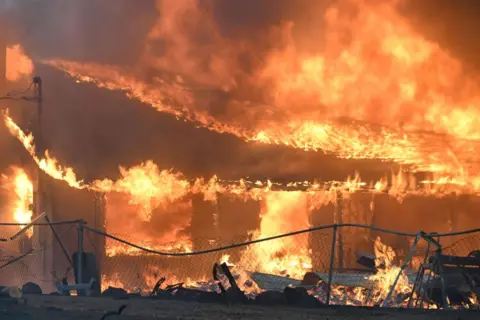 Getty Images
Getty ImagesScientists have said there can be no new fossil fuel extraction and there needs to be a rapid reduction of carbon emissions (around 45% by 2030 from the 2019 level) if the world is to limit warming to 1.5 Celsius compared to the pre-industrial period.
“The economics of energy supply are a key driver of decarbonisation,” said David Brown, director of energy transition practice at Wood Mackenzie, a global energy think-tank.
“The resource base of US energy supports the role of natural gas and liquids production. By contrast, import-dependent economies such as China, India, and those in Southeast Asia have a dramatic economic incentive to decarbonise sources of energy.”
Global energy transition investment surpassed $2tn for the first time last year but studies have also shown that the growth of clean energy transition has markedly slowed in recent years, while many major banks continue to finance fossil fuels.
